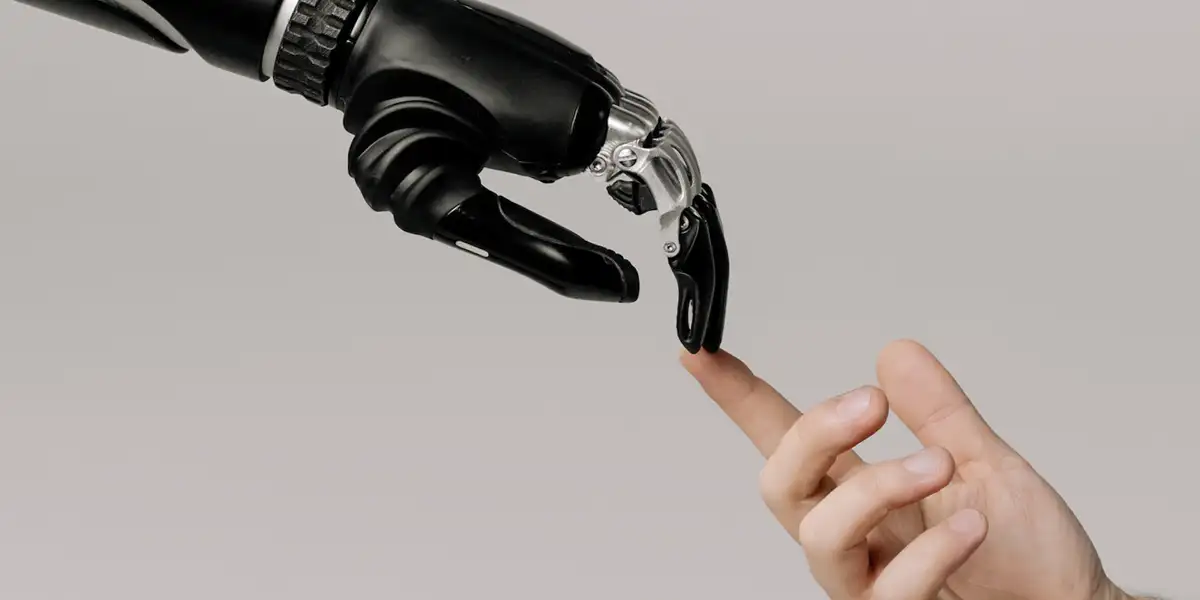How Revolutionizing is Ai in Marketing: The Know-hows

01. How future is shaped by Ai in Marketing
Artificial intelligence (AI) is no longer a futuristic concept, but a reality that is transforming every industry and business function, including marketing. AI refers to software that can learn from data and perform tasks that normally require human intelligence, such as understanding language, recognizing images, making predictions and generating content.
AI has the potential to improve the efficiency, effectiveness and creativity of marketing campaigns, by providing insights into customer behavior, preferences and needs, and by
automating tasks that are tedious or time-consuming. In this blog post, we will explore some of the ways that AI is revolutionizing marketing and what it means for marketers in the future.
02. AI for customer experience (CX)
One of the main goals of marketing is to create a positive and memorable customer experience (CX) that builds loyalty and trust. AI can help marketers achieve this goal by enabling hyper-personalization, which means delivering relevant and tailored content and
offers to each individual customer based on their data.
For example, AI can analyze customer data such as purchase history, browsing behavior, location and demographics, and use it to create personalized recommendations, messages,
emails and ads that match their interests and needs. AI can also use natural language processing (NLP) to understand customer queries and feedback, and provide conversational agents such as chatbots and voice assistants that can interact with customers in a natural and engaging way.
AI can also help marketers measure and improve CX by using sentiment analysis to gauge customer emotions and satisfaction, and by using predictive analytics to anticipate customer
needs and expectations.
According to a report by Salesforce (2021), 51% of marketing leaders say they are already using AI in some form or another, while 57% say it’s absolutely or very critical in helping their company create 1-to-1 marketing across every touchpoint. Moreover, 57% of consumers say they are willing to share personal data in exchange for personalized offers or discounts.
03. AI for Growth
Another key objective of marketing is to drive growth by attracting new customers and retaining existing ones. AI can help marketers achieve this objective by enhancing their lead
generation, conversion and retention strategies.
For example, AI can use data mining and machine learning to identify potential customers who are likely to be interested in a product or service, based on their online behavior, preferences and characteristics. AI can also use natural language generation (NLG) to create engaging and persuasive content such as headlines, slogans, descriptions and calls-to-action that can capture attention and motivate action.
AI can also help marketers optimize their conversion rates by using A/B testing and multivariate testing to compare different versions of a landing page, email or ad, and determine which one performs better. AI can also use reinforcement learning to adjust the
marketing strategy in real time based on feedback from customers.
AI can also help marketers retain customers by using churn analysis to identify customers who are at risk of leaving, and by using retention marketing to send personalized messages and offers that can increase loyalty and satisfaction.
According to a study by Business solution (2023), AI is used for marketing purposes by 28% of top companies. The market for AI in marketing was valued at 15.8 billion U.S. dollars in 2023 and expected to reach more than 107.5 billion by 2028. AI in marketing is growing at a rate of 186% year on year. Furthermore, 61.4% of marketers have used AI in their marketing
activities, while 44.4% have used AI for content production.
04. AI for Productivity
A third benefit of AI for marketing is that it can improve productivity by automating tasks that are repetitive or complex. This can free up time and resources for marketers to focus on more strategic and creative aspects of their work.
For example, AI can automate tasks such as data collection, analysis and reporting, which can provide marketers with faster and more accurate insights into their campaigns. AI can also automate tasks such as content creation, distribution and optimization, which can reduce the need for human intervention and error.
AI can also augment human capabilities by providing tools that can assist with tasks such as keyword research, content ideation, copywriting, design, video editing and more. These tools can leverage AI techniques such as generative adversarial networks (GANs), which can create realistic images or videos from scratch or modify existing ones.
According to McKinsey & Company (2021), the future of AI in marketing is promising, with potential for impact in three areas: customer experience (CX), growth, and productivity. AI is likely to play an even greater role in marketing and advertising in the future, offering new and innovative ways for companies to connect with customers and build their brands. For example, hyper-personalized content and offerings can be based on individual customer behaviour, persona, and purchase history.
Conclusion
AI is transforming the future of
marketing by enabling marketers to create better customer experiences, drive
more growth and improve their productivity. However, AI is not a magic bullet
that can replace human creativity or judgment. Marketers still need to have a
clear vision of their goals, a deep understanding of their customers and a
strong sense of ethics and responsibility.
AI is a powerful tool that can
enhance marketing performance when used wisely and responsibly. Marketers who
embrace AI will have a competitive edge in the rapidly changing digital
landscape.
Sources Linked: Mckinsey & Company (2021), Business Solution (2023), Forbes (2021), Salesforce (2021).
Read our Insightful articles
We help you with insightful strategy, marketing, sales, and business related articles, and industry trends, click below to learn more..
